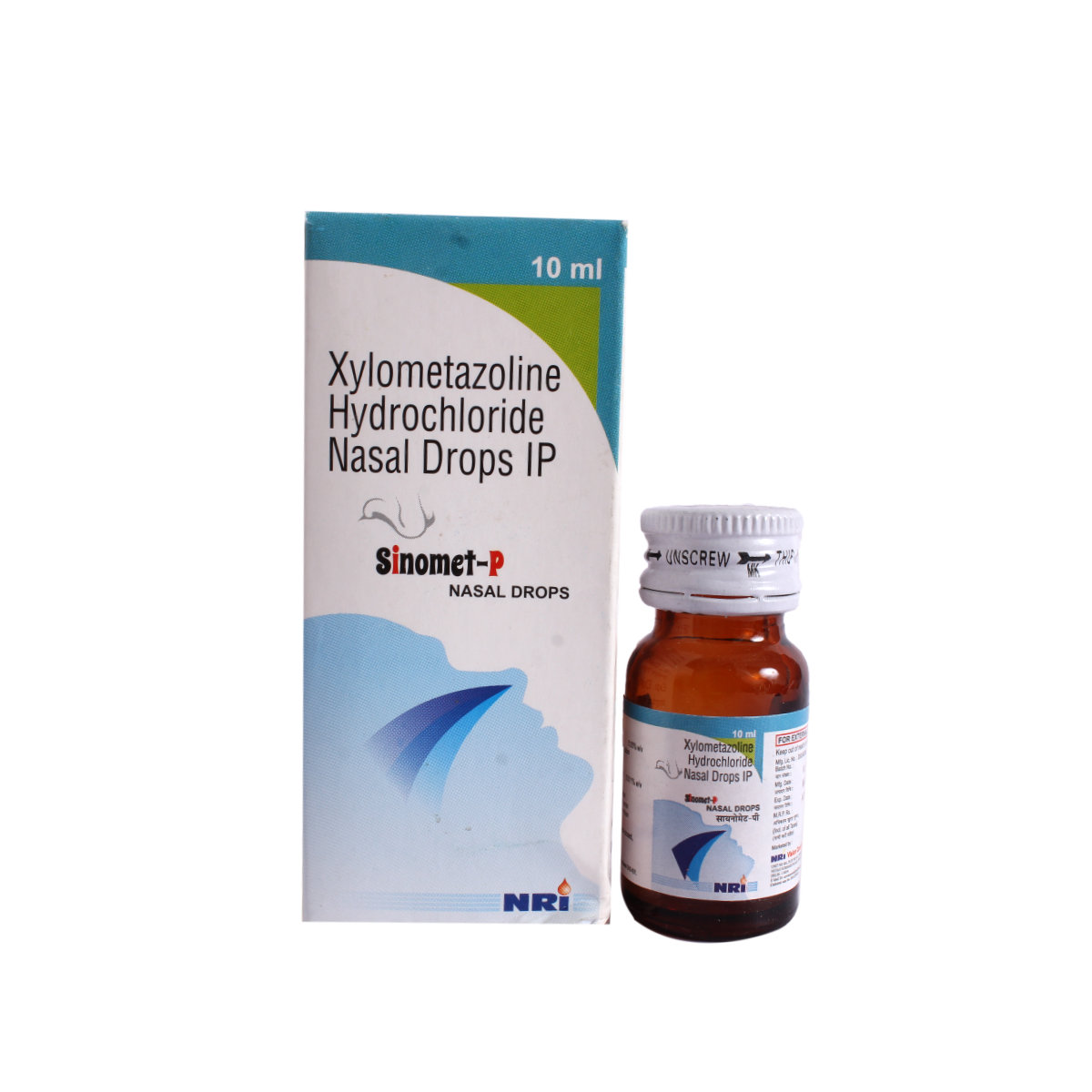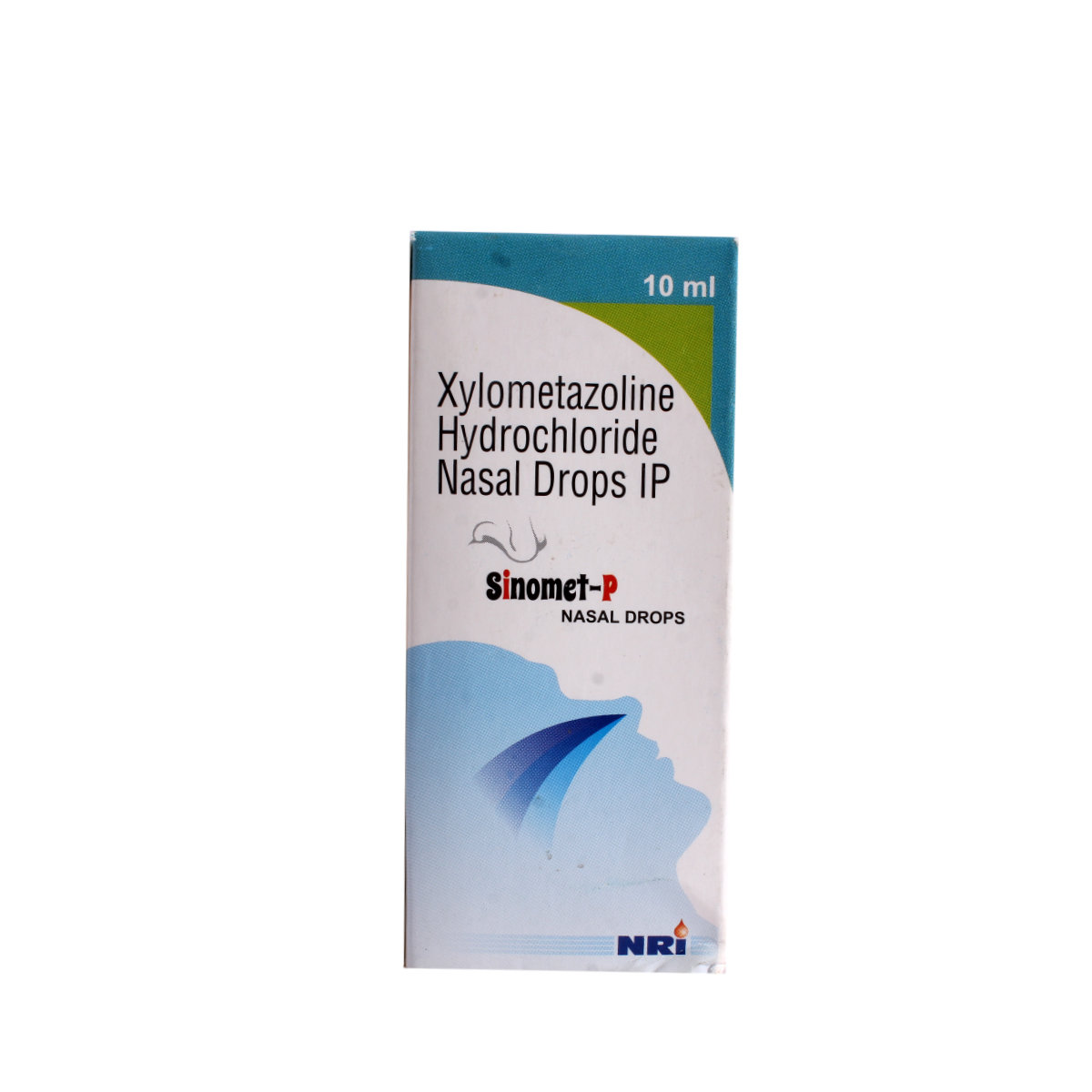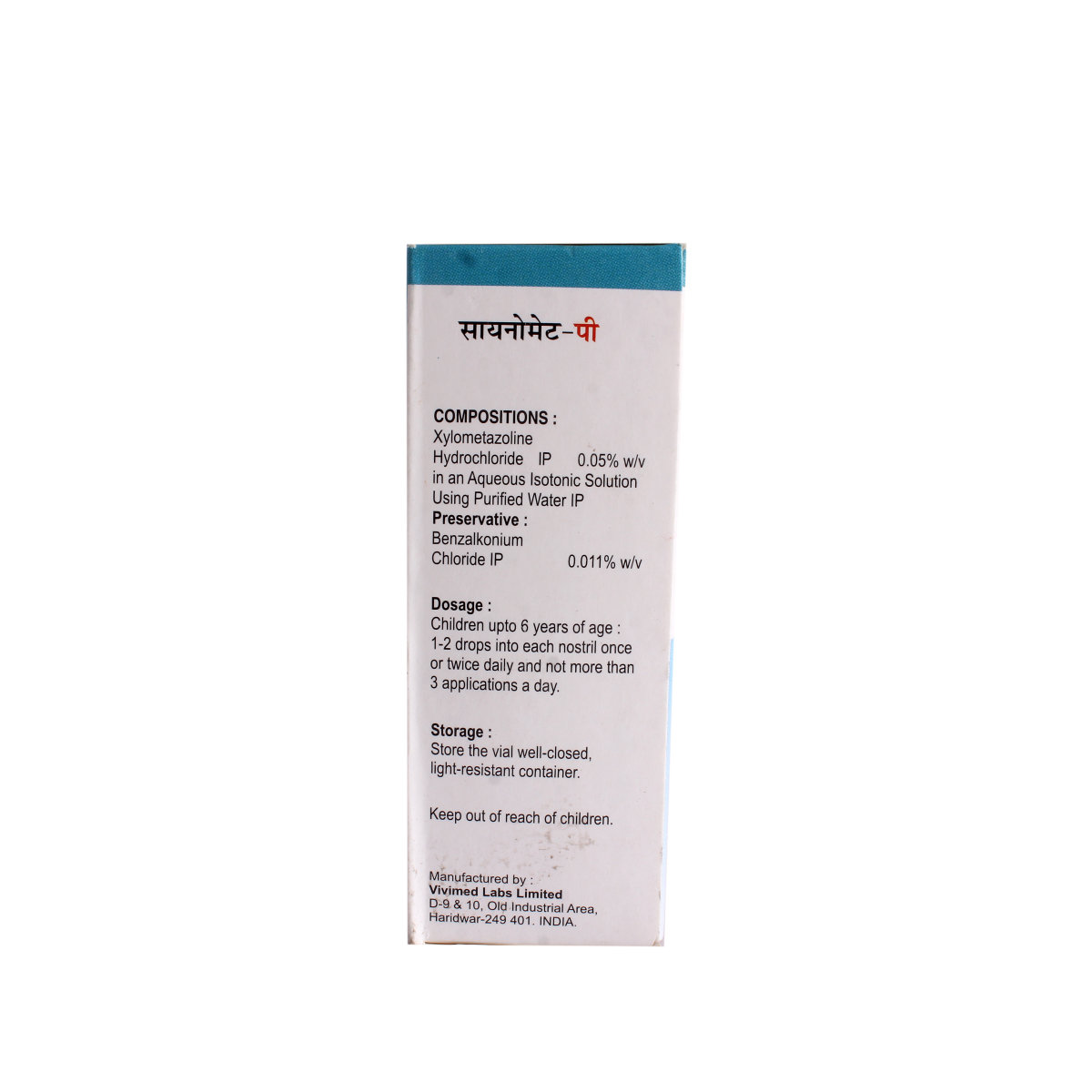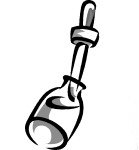Sinomet P Nasal Drop




MRP ₹65.5
(Inclusive of all Taxes)
₹9.8 Cashback (15%)
know your delivery time
Provide Delivery Location
Composition :
Manufacturer/Marketer :
Consume Type :
Expires on or after :
Return Policy :
NPPA :

Secure Payment

Trusted by 8 Crore Indians

Genuine Products
Therapeutic Class
Country of origin
Manufacturer/Marketer address
Disclaimer
Alcohol
Safe if prescribed
It is not known whether it is safe to consume alcohol with Sinomet P Nasal Drop. Please consult your doctor before using Sinomet P Nasal Drop.
Pregnancy
Consult your doctor
There is limited data on how Sinomet P Nasal Drop affects pregnancy. Please consult your doctor before using Sinomet P Nasal Drop if you are pregnant or planning to conceive.
Breast Feeding
Consult your doctor
There is limited data on how Sinomet P Nasal Drop affects breastfeeding. Please consult your doctor before starting Sinomet P Nasal Drop if you are a nursing mother.
Driving
Safe if prescribed
Sinomet P Nasal Drop does not affect your ability to drive. However, if you experience any unmanageable symptoms, do not drive or operate machinery until you feel better and focus.
Liver
Consult your doctor
Sinomet P Nasal Drop should be used with caution in patients with liver diseases. Let your doctor know if you have any history of liver diseases or hepatic impairment.
Kidney
Consult your doctor
Sinomet P Nasal Drop should be used with caution in patients with kidney diseases. Let your doctor know if you have any history of kidney diseases.
Children
Safe if prescribed
Sinomet P Nasal Drop is not recommended in children below 12 years of age, unless recommended by a child specialist.
Product Substitutes
About Sinomet P Nasal Drop
Sinomet P Nasal Drop belong to the class of medicine known as a decongestant. Sinomet P Nasal Drop is primarily used to treat nasal congestion (stuffy nose). It is also used to treat stuffy noses caused by sinus irritation, allergies, and the common cold. Nasal congestion is the blockage of nasal passage due to stuffed-up nasal fluid in the nose.
Sinomet P Nasal Drop contain Xylometazoline. Xylometazoline belongs to the class of 'decongestants'. It works by easing the inflammation and blocking of nasal passages by narrowing the blood vessels (vasoconstriction) and thus provides temporary relief from nasal congestion and blockage.
Take Sinomet P Nasal Drop as recommended by your physician. You are advised to take Sinomet P Nasal Drop for as long as your physician has suggested it for you, depending on your medical conditions. You may experience a burning sensation, dry nose, and sneezing. Most of these side effects of Sinomet P Nasal Drop do not require medical attention and gradually resolve over time. However, if the side effects are persistent, reach out to your physician.
Do not take Sinomet P Nasal Drop if you are allergic to Xylometazoline. Tell your physician if you are pregnant or breastfeeding. Inform your physician if you have high blood pressure, diabetes, glaucoma (increased eye pressure), liver disease, kidney disease, and thyroid disorder. Sinomet P Nasal Drop do not produce any effect on the ability to drive. Sinomet P Nasal Drop are not recommended for the use of children less than 12 years of age.
Uses of Sinomet P Nasal Drop
Medicinal Benefits Mweb
Key Benefits
Sinomet P Nasal Drop treats nasal congestion or blocked nose in common cold, sinusitis, hay fever, perennial and allergic rhinitis. It consists of Xylometazoline. Xylometazoline is a decongestant and an antihistamine drug. It works by easing the inflammation and blocking of nasal passages by narrowing the blood vessels (vasoconstriction) and reduces the swelling. This process provides temporary relief from nasal congestion and blockage. As an antihistamine drug, Xylometazoline provides relief from runny nose and sneezing by blocking the action of allergy-causing histamines.
Directions for Use
Side Effects of Sinomet P Nasal Drop
- Burning sensation
- Stinging
- Headache
- Increased blood pressure
- Dryness in the nose
- Dry mouth
- Increased heart rate
- Runny nose
- Sneezing
Drug Warnings
Please inform your physician if you use any other medicines, including vitamin and herbal supplements, before using Sinomet P Nasal Drop. Sinomet P Nasal Drop should be used only when advised by physician in people with a recent history of nasal surgery, chronic nasal inflammation, glaucoma, and adrenal gland tumors (phaeochromocytoma). Sinomet P Nasal Drop should be cautiously used in patients with heart, liver, or kidney diseases, inflammation of air passages, thyroid disorders (hyperthyroidism or overactive thyroid), enlarged prostate, urination problems, high blood pressure, and diabetes. Pregnant and breastfeeding women should use Sinomet P Nasal Drop with proper consultation and caution. Avoid consuming alcohol along with Sinomet P Nasal Drop to prevent any unwanted side effects. Sinomet P Nasal Drop is not recommended for use in children below 12 years of age, unless recommended by a child specialist.
Drug-Drug Interactions
Drug-Drug Interactions
Login/Sign Up
Drug-Food Interactions
Drug-Food Interactions
Login/Sign Up
Drug-Diseases Interactions
Drug-Diseases Interactions
Login/Sign Up
Drug-Drug Interactions Checker List
- AMITRIPTYLINE
- ISOCARBOXAZID
- PHENELZINE
- SELEGILINE
- TRANYLCYPROMINE
- MOCLOBEMIDE
- RASAGILINE
- SAFINAMIDE
- GUANETHIDINE
- LINEZOLID
Habit Forming
Special Advise
If you do not notice any improvement in your condition after using Sinomet P Nasal Drop for 5-7 days, please reach out to your physician.
Diet & Lifestyle Advise
- Know your triggers like allergens, such as pollen, dust, and food items that make your asthma and other respiratory diseases severe.
- Quit smoking and avoid passive smoking. Smoking also reduces the effectiveness of the medicine.
- Drink extra fluids while you take Sinomet P Nasal Drop to help loosen congestion and lubricate the throat.
- Eat a healthy diet and exercise regularly to strengthen your breathing muscles and boost your immune system.
- Learning breathing exercises will help you move more air in and out of your lungs.
All Substitutes & Brand Comparisons
RX
Out of StockOtrimax-P 0.05%W/V Nasal Drops 10ml
Systemic Healthcare
₹43.12
(₹3.88/ 1ml)
34% CHEAPERRX
Out of StockXylopen Paediatric Nasal Drops 10ml
Morepen Laboratories Ltd
₹44
(₹3.96/ 1ml)
32% CHEAPERRX
Otrivin Nasal Drop 10 ml
GlaxoSmithKline Consumer Healthcare Ltd
₹143.5
(₹14.35/ 1ml)
143% COSTLIER

Have a query?
Buy best Ear, Nose & Oropharynx products by
Entod Pharmaceuticals Ltd
Cipla Ltd
NuLife Pharmaceuticals
Nri Vision Care India Ltd
Lincoln Pharmaceuticals Ltd
Glenmark Pharmaceuticals Ltd
Macleods Pharmaceuticals Ltd
Pristine Pearl Pharma Pvt Ltd
Centaur Pharmaceuticals Pvt Ltd
Dr Reddy's Laboratories Ltd
Lupin Ltd
Zydus Healthcare Ltd
Indoco Remedies Ltd
Intas Pharmaceuticals Ltd
Mankind Pharma Pvt Ltd
GlaxoSmithKline Pharmaceuticals Ltd
Leeford Healthcare Ltd
Megma Healthcare Pvt Ltd
Sapient Laboratories Pvt Ltd
Sun Pharmaceutical Industries Ltd
Zuventus Healthcare Ltd
Zydus Cadila
Auskincare Formualation Pvt Ltd
Alkem Laboratories Ltd
Bell Pharma Pvt Ltd
Chethana Pharmaceuticals
Dwd Pharmaceuticals Ltd
German Remedies Ltd
Kaizen Drugs Pvt Ltd
Torque Pharmaceuticals Pvt Ltd
Vilco Laboratories Pvt Ltd
Avilius Neutracare
Biochem Pharmaceutical Industries Ltd
Blubell Pharma
Delcure Life Sciences Ltd
Eris Life Sciences Ltd
Kavach 9 Pharma & Research Pvt Ltd
Medishri Healthcare Pvt Ltd
NVK Pharma
Optho Remedies Pvt Ltd
Ordain Health Care Global Pvt Ltd
Respionix Healthcare Pvt Ltd
Troikaa Pharmaceuticals Ltd
Xseed Pharma
Abbott India Ltd
Atopic laboratories Pvt Ltd
Cadila Pharmaceuticals Ltd
Clyde Pharmaceutical Pvt Ltd
East India Pharmaceutical Works Ltd
FDC Ltd
Incus Pharmaceuticals Pvt Ltd
Meridian Enterprises Pvt Ltd
Micro Labs Ltd
Morepen Laboratories Ltd
Nextgen Healthcare
Novalab Healthcare Pvt Ltd
Ocuris Pharmaceuticals Pvt Ltd
Precept Pharma
Salvador Visiontech Pvt Ltd
Sunways (India) Pvt Ltd
Timon Pharmaceuticals Pvt Ltd
Unison Pharmaceuticals Pvt Ltd
Aar Ess Remedies Pvt Ltd
Adley Formulations
Ajanta Pharma Ltd
Alercon Pharma Pvt Ltd
Apex Laboratories Pvt Ltd
Aver Pharmaceuticals Pvt Ltd
BMW Pharmaco India Pvt Ltd
Bio Warriors Pharmaceucticals Pvt Ltd
Casca Remedies Pvt Ltd
Elan Pharma India Pvt Ltd
Elivia Life Sciences Pvt Ltd
Elkos Healthcare Pvt Ltd
Floreat Medica Pvt Ltd
Healthgate Pvt Ltd
Ikon Remedies Pvt Ltd
Ipca Laboratories Ltd
Koye Pharmaceuticals Pvt Ltd
Lividus Pharmaceuticals Pvt Ltd
Orn Remedies Pvt Ltd
Rosa Lifesciences
Siloam Pharmaceuticals Pvt Ltd
Sitnez Biocare Pvt Ltd
Srigan Anatto Care Pvt Ltd
Uniza Healthcare Llp
Vatican Life Sciences Pvt Ltd
Welgenic Pharma
Wellok Pharma
West Coast Pharmaceuticals Pvt Ltd
Win Medicare Ltd
Zee Laboratories Ltd
Abyss Pharma Pvt Ltd
Accent Pharmaceuticals & Diagnostics
Alembic Pharmaceuticals Ltd
Alencure Biotech Pvt Ltd
Austere
Bacans Biotech Pvt Ltd
Biopolis Life Sciences Pvt Ltd
Biosys Medisciences



